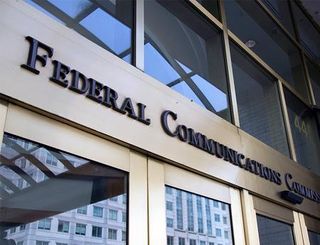FCC Appoints Downloadable-Security Committee

The Federal Communications Commission on Wednesday announced the appointment of 18 members to a new committee that will help the agency pursue a successor the CableCARD.
That group, called the Downloadable Security Technology Advisory Committee (DSTAC), is comprised of 18 members (Multichannel News identified most of the companies and organizations last week as the FCC was finalizing its list):
-Dr. Ahmad Ansari, Director of New Product Development, AT&T Labs;
-Brant Candelore, Senior Staff Member, Sony Electronics;
-John Card II, Director of Standards and Technology, EchoStar Technologies, LLC (Dish Network);
-Matthew Clark, Principal, Business Development Digital Products, Amazon;
-Bob Clyne, Senior Vice President of Engineering and New Technologies, Cablevision Systems;
Multichannel Newsletter
The smarter way to stay on top of the multichannel video marketplace. Sign up below.
-Adam Goldberg, Principal, AGP, LLC/Public Knowledge;
-Mark Hess, Senior Vice President, Office of the Chief Technology Officer, Business and Industry Affairs, Comcast Cable;
-Brad Love, Chief Technologist, Hauppauge;
-Kenneth Lowe, VP and Co-Founder, Vizio;
-John McCoskey, EVP, Global Policy and External Affairs, Motion Picture Association of America;
-Bruce McClelland, President of Network and Cloud & Global Services, Arris;
-Milo Medin, Vice President of Access Services, Google;
-Alan Messer, Vice President, Advanced Technology, Samsung’s Advanced Technology Lab;
-Jay Rolls, Senior Vice President and Chief Technology Officer, Charter Communications;
-Simha Sethumadhavan, Associate Professor of Computer Science & Alfred P. Sloan Fellow, Columbia University;
-Brent Smith, President and CTO, Evolution Digital;
-Dr. Joseph Weber, Chief Technical Officer for the Service Provider Business Unit, TiVo; and
-Robin Wilson, Vice President, Business Development, Nagra.
Cheryl Tritt of Wilkinson, Barker, Knauer will serve as chair of the DSTAC. Brendan Murray and Nancy Murphy will serve as the Designated Federal Officer and Alternate Designated Federal Officer, respectively, of the DSTAC, according to the FCC.
The DSTAC is forming following the STELAR Act, which became law late last year, thus activating a provision that will sunset the FCC’s current ban on set-tops with integrated security after a year. Separable security has largely been handled by the CableCARD, a security module for set-tops and TVs that failed to create a vibrant retail market for cable-ready video devices.
The Act directs the DSTAC “to identify, report, and recommend performance objectives, technical capabilities, and technical standards of a not unduly burdensome, uniform, and technology- and platform-neutral software-based downloadable security system” to promote the competitive availability of navigation devices (set-top boxes and television sets, etc.). The DSTAC must file a report with the Commission by September 4, 2015 to detail its findings and recommendations.
DSTAC meetings will be open to the general public. The first meeting has been scheduled for Tuesday, Feb. 17, 2015, at FCC headquarters in Washington, D.C.
Beyond Broadband Technology (BBT), a consortium founded by small cable operators that has developed a downloadable security system, wanted to be part of the committee but did not make the cut. It had urged the FCC to reconsider over concerns that smaller operators would not be represented properly and arguing that the technical expertise of BBT chief technology officer Bill Bauer would bring value to the group.
